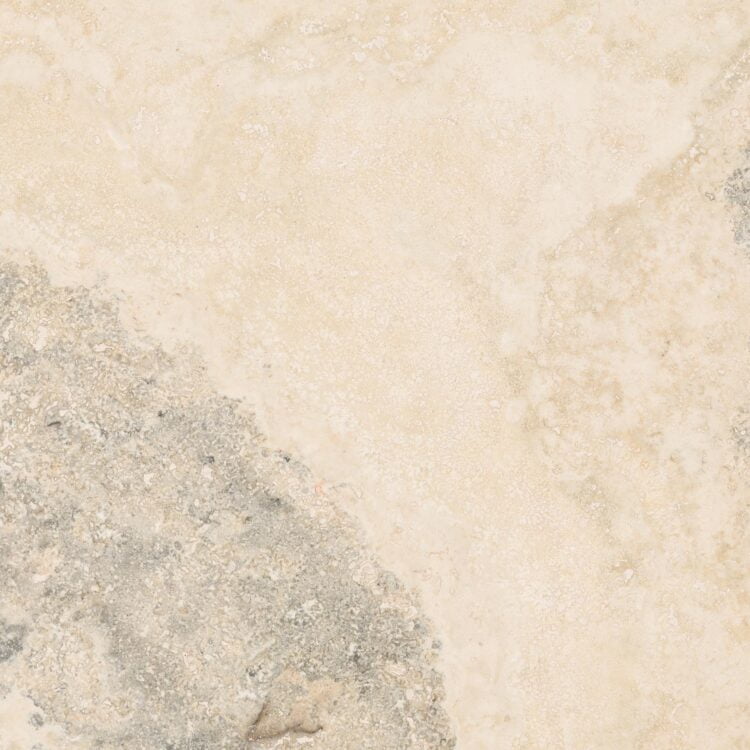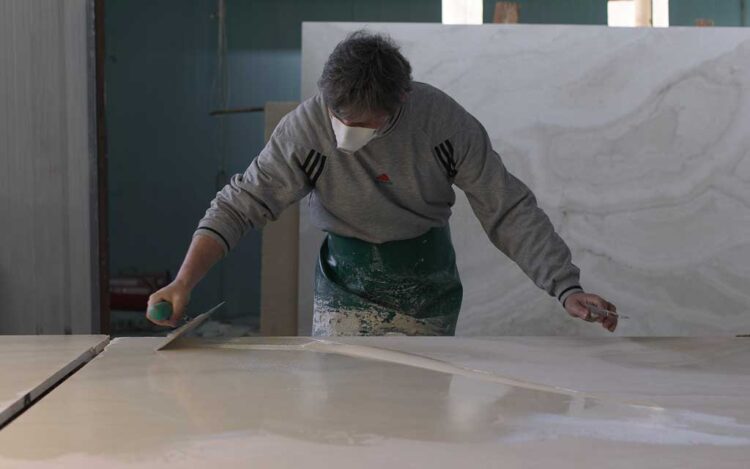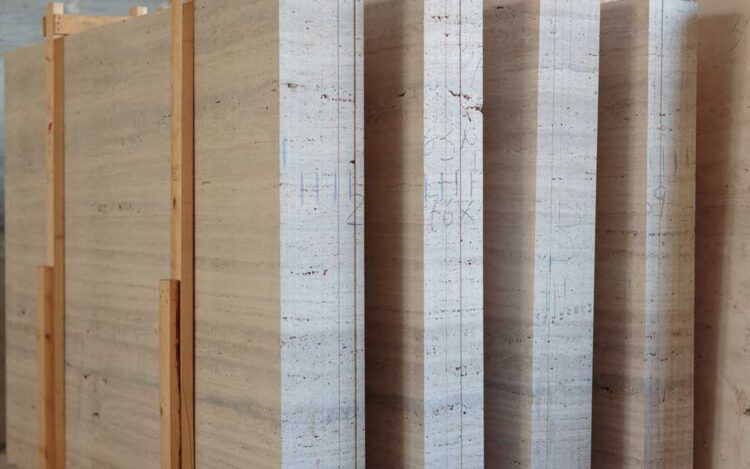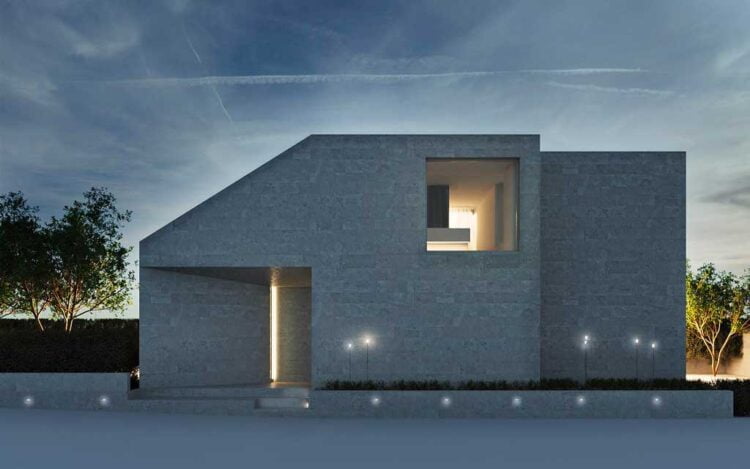Ocean Blue Cross Cut Roman Travertine
Material: Roman Travertine
Origin: Tivoli, Italy
Availability: Blocks, Slabs, Cut to size
Suggested finishes:
saw cut, honed and stone color filled, honed and unfilled, brushed and unfilled, brushed and stone color filled
Suggested processing:
stone profiles, mosaics and patterns
General description
Roman Travertine Ocean Blue in cross cut processing inspires a a walk in nature where water and earth meet: recalling the colors of the water and the earth. The fascinating pattern of this trim was created with cross cut processing: the slabs were cut perpendicularly to the roman travertine quarry bench layer, donating to the surface a neat beige background with flows of darker tonalities. Ocean Blue presents delicate blue waves, resembling the constant motion of sea waves.
A natural masterpiece perfect for decorating any surface: travertine typical durability is best suited for cladding and paving, while its resistance makes it appropriate for both interior and exterior design and decor. Roman Travertine Ocean Blue in cross cut is an exlusive natural stone. With its peculiar surfacing inspired many projects, from mosaics to furnishing objects, such as tables and countertops.
With this particular trim we are paying homage to the water as a natural element. Water in fact is fundamental to the creation of travertine: without mineral water springs the process of sedimentation would not take place, and we could not revel in its presence. Our travertines are extracted from the Barco Quarry, the most ancient quarry of Roman Travertine: the same that provided Romans with the construction material for their worldwide appreciated monuments.
Technical Specifications Roman Travertine Ocean Blue
1) Flexural strength (UNI EN 12372)
1a) Load perpendicular to asiontropic planes
| Mean Fleaxural Strength | Standard deviation |
| 12,5MPa | 1,8Mpa |
1b) Load perpendicular to corners of asiontropic planes
| Mean Fleaxural Strength | Standard deviation |
| 13,1MPa | 2,0Mpa |
2) Freeze-thaw resistance (UNI EN 12371)
2a) Load perpendicular to asiontropic planes
| Mean Fleaxural Strength | Standard deviation |
| 8,3MPa | 0,9Mpa |
2b) Load perpendicular to corners of asiontropic planes
| Mean Fleaxural Strength | Standard deviation |
| 9,2MPa | 1,7Mpa |
3) Slip Resistance (UNI EN 1341)
| Mean Slip Resistance, Single Sample |
| 63 |
4) Abrasion Resistance (UNI EN 1341)
| Mean Abrasion Resistance |
| 21,4 |





